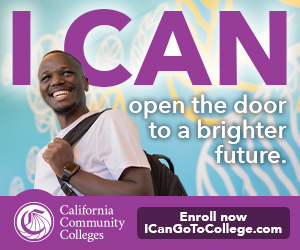Local Black-owned businesses have been awarded the $10,000 BeyGOOD/NAACP Black-Owned Small Business Impact Fund grant. Find out about additional rounds of funding.
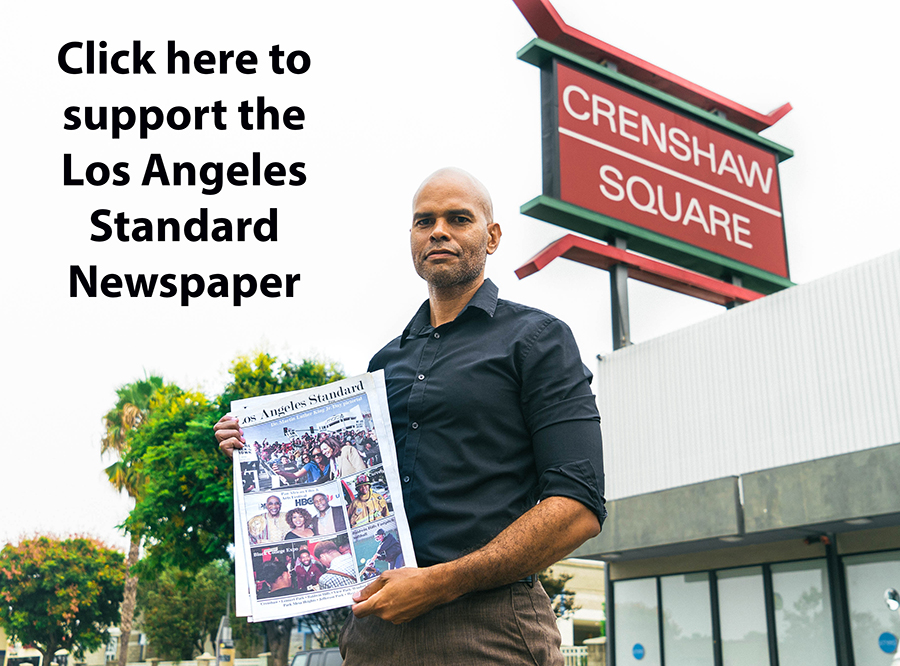
By Jason Lewis
Beyoncé and the NAACP have partnered to create the BeyGOOD/NAACP Black-Owned Small Business Impact Fund. BeyGOOD is Beyoncé’s non-profit foundation, and with the NAACP, they awarded $10,000 grants to Black-owned small businesses across the nation, including businesses that are in Los Angeles. The grant is applied through Hello Alice, which helps entrepreneurs and small business owners find the right path to launch and grow their company.
Hank’s Mini Market, Jikoni Creative Studio, Almighty Los Angeles, and The Black Coffee Company are receiving grants that will help them keep their doors open.
Hank’s Mini Market is in South Los Angeles on Florence Avenue, a few blocks east of Crenshaw Boulevard. The market was featured in the Los Angeles Standard Newspaper in May of 2018 in an article titled, “Hank’s Mini Market becomes the store that South L.A. deserves.” Kelli Jackson took over the store from her father Hank and transformed the liquor store into a fresh-food market and community center.
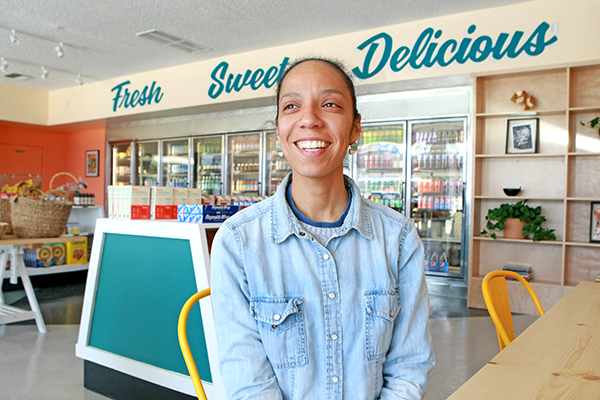
Unfortunately Jackson had to temporarily close the market because of the pandemic.
“Due to COVID-19, Hank’s Mini Market has been temporarily closed,” Jackson said. “We are blessed and grateful to be selected for the BeyGOOD/NAACP Black-owned Small Business Impact Fund. This grant will help towards our re-opening strategy to return better, stronger and safer. And because we believe we are stronger together, we will remain committed to bringing access to art, healthy food options, and safe spaces to our community. We look forward to continuing our work as a pillar in our Hyde Park neighborhood of South Central Los Angeles and be of service to all.”
Courtney Campbell, founder of Almighty Los Angeles, also had to close down because of the pandemic. His skateboard and streetwear shop opened in 2018 in downtown. The store promotes art, music, photography, and they help young skateboarders secure sponsorship.
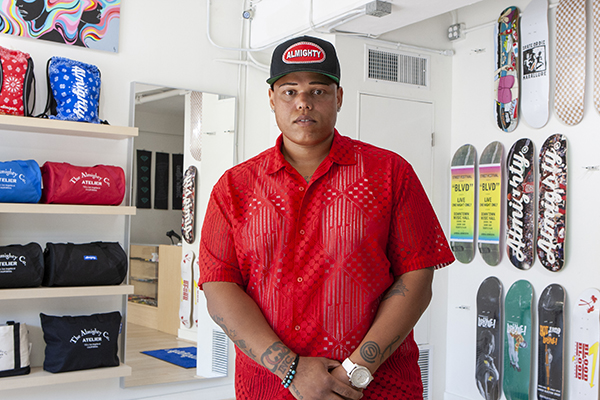
“We had to shut our shop down for almost four months,” Campbell said. “Obviously the landlord is not going to give us free rent for four months. So we still had to pay rent. A lot of my guys that worked with me before, I didn’t want to put them out on the streets without any money, so I was still trying to find ways for them to at least earn some type of work with us.”
The United States is being hit by two pandemics: COVID and racism. Unfortunately for Campbell, he was struck by both as the peaceful protesting of George Floyd’s killing in Minneapolis was accompanied by riots and looting.
“Our shop was broken into and pretty much destroyed,” Campbell said. “They took everything. That was very difficult for us.”
Campbell’s business is dependent on having people walk through the doors of Almighty Los Angeles.
“Our store is primarily based as a retail store,” he said. “We do online but our main business is in the store. So not having the foot traffic or our normal clientele hurt. For almost five months we didn’t have anything, so it was very difficult.”
Almighty Los Angeles was not only closed for retail, but their abilities to market a new brand were greatly diminished.
“We couldn’t do photoshoots or work with our production companies,” Campbell said. “A lot of our distributors were shut down so we weren’t able to get products made. It was just a very uncertain time for us.”
The $10,000 grant is instrumental for Campbell to stay in business.
“It gives an opportunity to continue what we were doing for the community,” he said. “To give people great products at fair prices. I hire kids from the community to work in the shop. We work with local skate kids to give them the opportunity to showcase their talents to whoever is interested in what our brand does. So with this money, we’ll be able to continue with the goals and visions that we have.”
Kiano Moju ran into similar issues as Campbell did. She is the owner of Jikoni Creative Studio, which is a food production studio in the Arts District of downtown Los Angeles.
“We tell food stories and give recipes that relate to the African Diaspora,” she said.
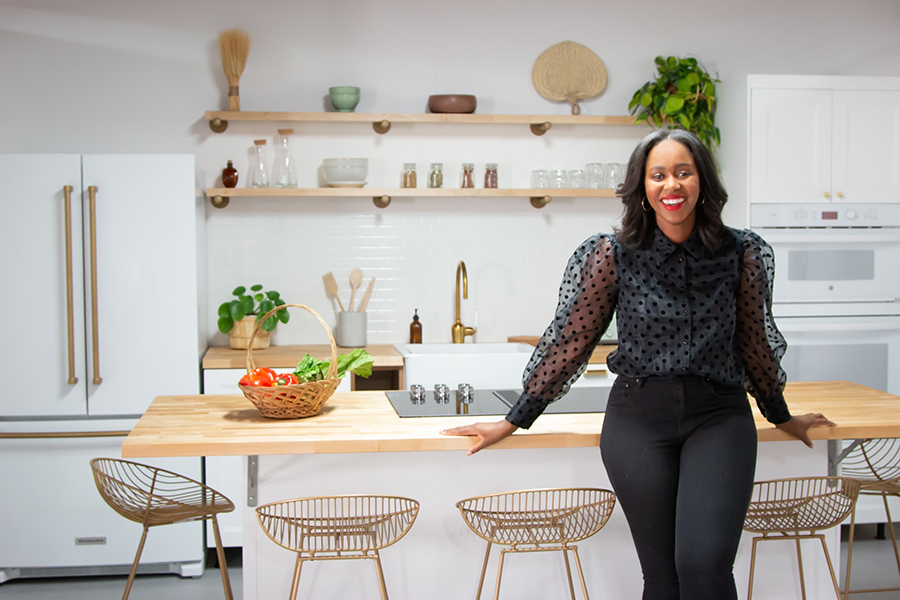
Moju is still in the start-up phase, so the closures hit her company pretty hard.
“Our business was really new,” she said. “We had just opened the studio a couple months before and then video production was put on pause. It was really hard because we were coming out the gate only with expenses. So we had built this studio that couldn’t be used for months. Commercial businesses didn’t have any rent forgiveness or postponements, so we really had to bootstrap it just to stay open. When we can open and function normally, our business can have a shot.”
The $10,000 grant is extremely important for Moju to weather this storm.
“It will help keep our doors open most importantly,” she said. “It will help us with our rent.”
Start-up companies typically struggle in their first few years in business, and it is extremely difficult to grow during a pandemic. The Black Coffee Company will be using the grant to help shift their business model and expand their product line.
“Black Coffee has successfully launched several products and services during the pandemic,” said Jamin Butler, co-founder of The Black Coffee Company. “Our growth and revenue depended on farmers markets, festivals, and pop-up shops in our communities. When the pandemic hit, we realized that in-person vending opportunities would become severely impacted. We went to work creating a space that would not only allow continuity of revenue while connecting consumers to our products, but also tend to our fellow entrepreneurs. The Black Coffee Virtual Expo was created for entrepreneurs to safely showcase their products and services to audiences across the globe.”
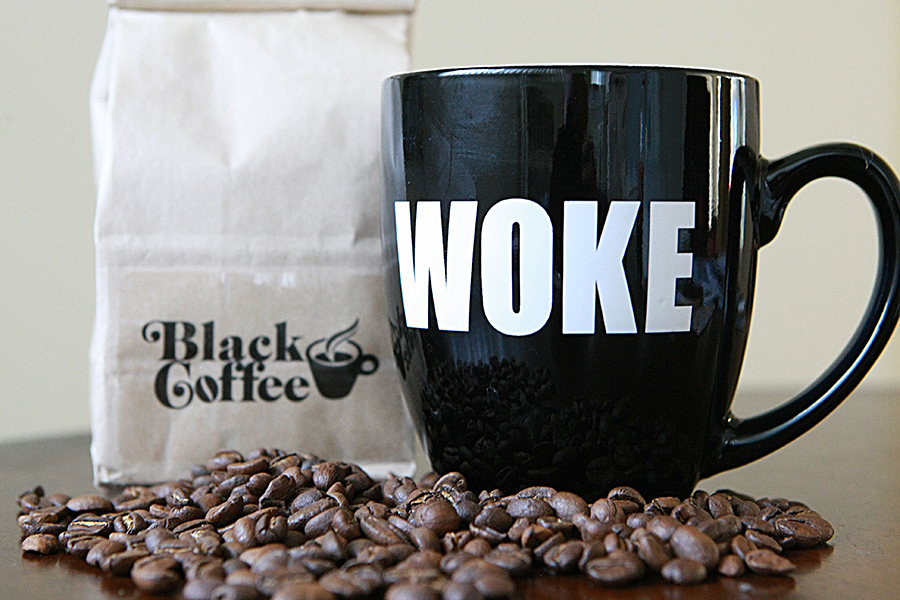
The Black Coffee Company was founded by five Xavier University of Louisiana classmates, three of which attended Washington Prep High School in South Los Angeles and who have strong ties to Inglewood. They have hosted pop-up events in South Los Angeles and Inglewood, and they have been vendors at local events. Instead of scaling back during the pandemic, they’ve implemented ideas that had been put on the back burner.
“We launched in 2018, everyone asked two questions: ‘Do you have k-cups?’ and ‘When are you going to open a coffee shop?’” Butler said. “Pre COVID-19, our response was, ‘Sorry, we don’t offer k-cups’ and ‘Decentralization works well for us, but one day we will have a coffee shop.’
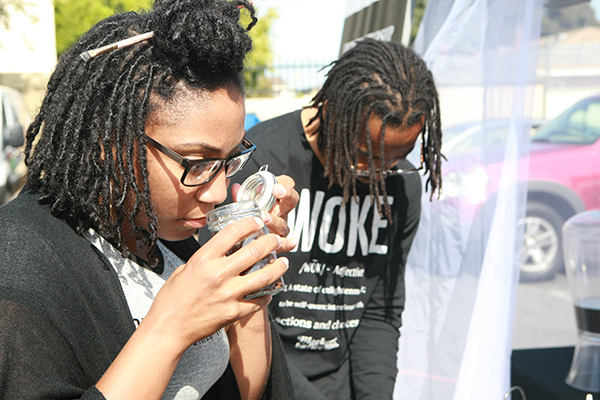
The founders of The Black Coffee Company are putting the phrase, “Never let a good crisis go to waste” to good use.
“With that in mind, we bet on ourselves, launched k-cups and a coffee subscription service in August, as well as expanded our operations to Houston,TX and sales have increased exponentially,” Butler said. “Lastly, we took the leap and will be opening our first coffee shop in Atlanta, Georgia in November 2020.”
To apply for the grant, visit www.naacp.org/black-owned-business-impact-fund/



